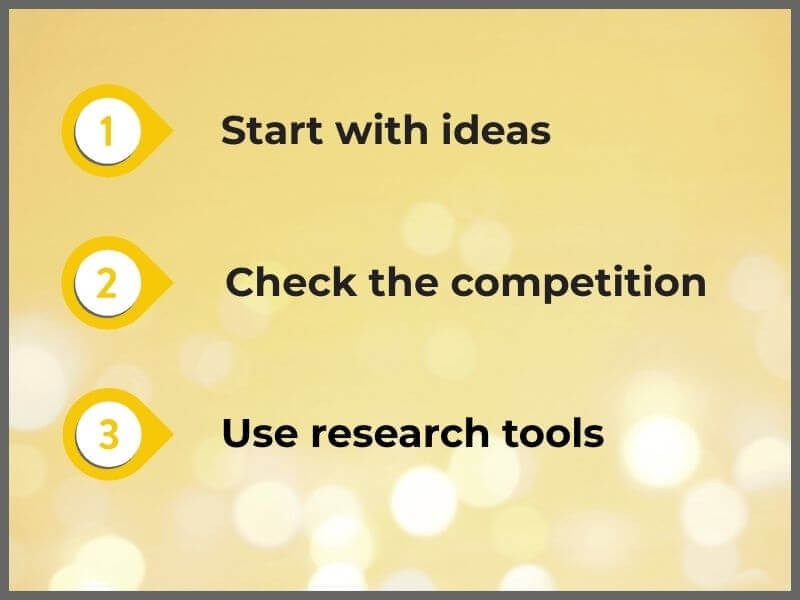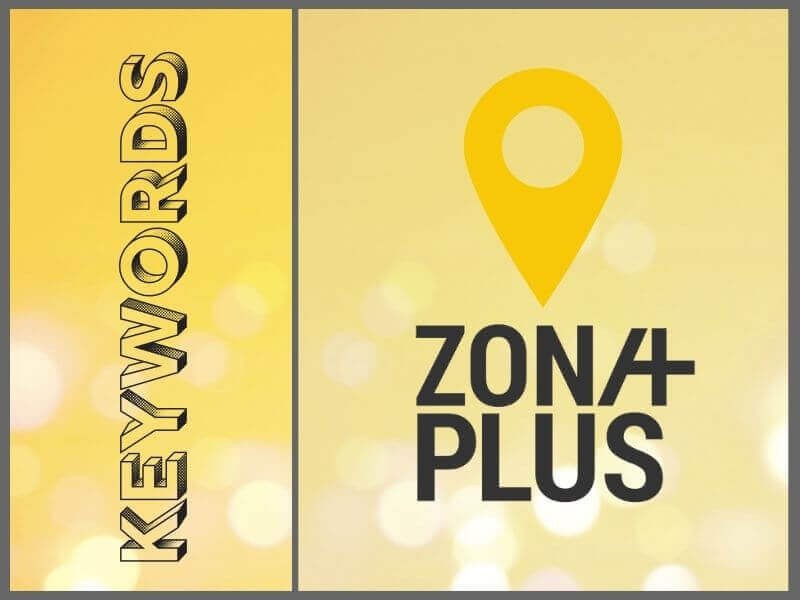
Keyword analysis for small niches helps you uncover exactly those specific searches. And when you run a small business, you don’t want to compete with big companies in a broad market. You want to carefully choose where to position yourself.
What is keyword analysis and why is it important for small niches?
Imagine you’re searching for something very specific online, like “vegan gluten-free cake in Split.”
That kind of search is an example of what we call a “niche,” a narrowly focused topic with a clearly defined interest.
For small brands, artisans, and professionals, finding the right niche brings more relevant visitors, less competition, and better return on investment. To achieve all that, you need to understand what people are actually searching for - and how they type it into Google.
To start, ask yourself: What would someone who’s looking for you type into Google?

Simply put, niche keywords are specific phrases that precisely describe your offer. They’re not broad or generic, but focused on a narrower interest or specific need.
Picture someone who’s not just looking for “women’s shoes,” but “shoes for women with wide feet.” That person knows exactly what they want and is ready to buy. If you offer that exact product, you want to be found quickly, without having to wade through irrelevant results.
Here are more examples:
Fewer searches? Yes. But each search carries more weight, because it comes from someone looking for exactly what you offer.
When you’re small, every chance to reach the right audience counts. Broad terms are often taken over by big brands with large budgets and massive marketing teams.
If you try to compete for those same words, you’ll spend a lot of time and money, and often get weak results.
On the other hand, niche keywords reduce competition and improve accuracy. Here’s what you get:
Keyword analysis for small niches means finding the exact terms people type into search engines that are connected to your offer. In practice, this involves three important steps:
Example: the term “flowers” has a high search volume, but also massive competition. On the other hand, the term “flower shop with delivery in Zagreb” has fewer searches, but it comes from someone who wants to buy, and wants it right away.
Good analysis helps you stop guessing and start attracting people who are truly looking for what you offer.

“Long-tail” keywords are long, precise terms people use when they know exactly what they’re looking for. These terms don’t attract huge crowds, but they attract the right audience - people who are close to making a purchase decision.
Examples:
Each of these phrases is clear, specific, and reveals the user’s intent. Your goal is to find phrases you can cover with content that answers their question or need.
How to find the best words?
The right terms won’t appear out of thin air; it takes time for brainstorming, research, and using tools.
Here’s how to get started:
Write down all the words and phrases your customers might use to describe your product or service.
Put yourself in their shoes: how would someone who’s never heard of you call what you offer? Use the words your audience uses, not industry jargon.
If you’re not sure, ask real customers or browse forums and Facebook groups related to your topic.
Type “your” terms into Google. Who shows up? What’s written on their websites? Which words keep repeating? What do the headlines say? This is a great way to see what works for others.
Here are a few useful tools that can give you data about the popularity and competition of each phrase:
You don’t need to use all these tools; start with one or two. The key is to choose phrases that have enough searches but aren’t overly competitive.
What should you pay attention to?
When looking at the numbers and suggestions, watch for three things:

When you work in a small, specific niche, you don’t need to try playing the big brands’ game. You have a different advantage - you know your audience and their real needs better. By using terms that reflect real needs, you’re actually creating a shortcut to people who are ready to listen to you, ask you questions, and buy from you.
This process doesn’t end with a list of keywords - it grows alongside your business. The more you listen to your customers, the more you track their questions and habits, the better you’ll know how to reach them. And that knowledge is worth more than anything.
If you’d like support in this process, feel free to contact us.
At Zona Plus we help businesses find the right words and use them in the right places.
If you’d like to receive practical tips like these straight to your inbox, sign up for our newsletter and stay up to date with digital opportunities you can apply right away.

If you’re ready to take small but effective steps toward better online visibility, here are concrete things you can do today - without complicated tools or big investments.
Open Google and type the name of your product or service.
As you type, Google automatically suggests endings - these are the most common searches related to your term. Example: If you type “cakes for”, Google might suggest “cakes for birthdays”, “cakes for kids’ birthdays”, “cakes for 18th birthday”.
Why is this useful? These suggestions are a free insight into what your customers are really looking for. Each suggestion can become a new opportunity to adapt the content on your website.
Tip: Write down all the suggestions that relate to your offer. You can later check them through tools for more precise data.
Ask yourself: What would someone really type when looking for what I offer?
Try to forget the technical terms or internal names you use. Instead, imagine a person who knows nothing about your brand but has a need or problem you solve.
Example: If you sell “LED lighting for aquariums”, consider whether someone would actually type that phrase or something like “best light for fish tanks” or “lighting for freshwater aquarium”.
Tip: Ask friends, acquaintances, or existing customers how they would describe your product. The answers might surprise you and give valuable ideas.
Type those terms into Ubersuggest and look at the search volume and competition difficulty.
Ubersuggest is a tool that shows you how often each phrase is searched and how hard it is to break into the top spots on Google.
The goal is to find terms that have a solid number of searches but lower competition.
These terms are your opportunity - popular enough to attract people, but not so competitive that big players crush you.
Tip: Focus on phrases with lower competition difficulty and enough searches to make it worth investing in them.
Check if you’ve used those terms in the titles, subtitles, and descriptions of your pages.
Titles and subtitles are the first places where Google and visitors look for clues about what the page is about. If your pages don’t have niche phrases in important spots, you might be missing a chance for Google to rank them better.
Tip: Don’t stuff the content - the phrase needs to “fit” naturally into the text. If it feels forced, rephrase the sentence.
Example: Instead of “Our offer” write “Personalized gifts for godparents - our offer”. This way you immediately highlight the phrase customers are searching for.
Create an educational blog post about that phrase - and share it on social media.
When you find a phrase with potential, use it to write a blog that answers a question, problem, or need connected to that term.
Example: If you found that people often search “how to choose aquarium lighting”, write a blog titled: “How to Choose Aquarium Lighting: 5 Things You Must Know”.
In the blog use the phrase in the title, subtitles, and a few times in the text, but naturally, without forcing it.
Then share the blog on Facebook, Instagram, LinkedIn, or other networks where your potential customers are.
Tip: At the end of the blog add a call to contact or a question, for example: “Do you have a special type of aquarium? Contact us - we’d be happy to help you choose the best solution.”
If you have a local business, add the name of your city or town into the terms you’re targeting. Example: “poodle grooming Osijek” instead of just “poodle grooming”. This helps you show up for people in your area, who can truly become your customers.